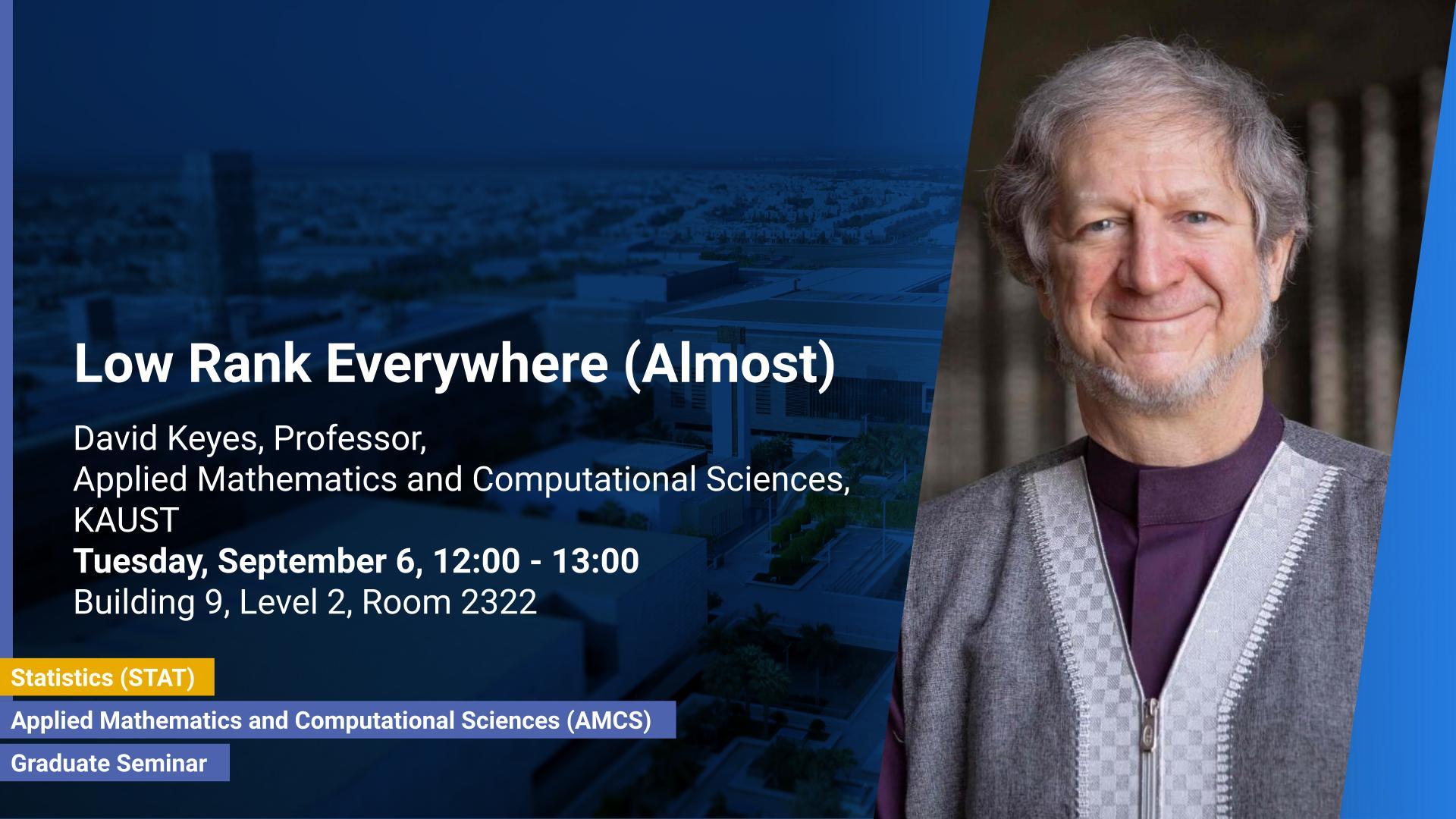Abstract
Tile low-rank and hierarchical low-rank matrices can exploit the data sparsity that is discoverable all across computational science: integral equations, differential equations (Schur complements), spatial statistics (covariances), optimization (Hessians), data compression, RBF-based meshing, non-Fickian diffusion, and in various KAUST applications such as seismic redatuming, acoustic scattering, adaptive optics, climate and weather predictions, and more, Exploiting data sparsity can improve performance dramatically by allowing the working set to dwell higher in the memory hierarchy than for dense algorithmic counterparts. We illustrate in large-scale applications and hybridize with similarly motivated mixed precision representations while featuring ECRC research in progress with many collaborators.
Brief Biography
David Keyes is a professor of applied mathematics, computer science, and mechanical engineering at the King Abdullah University of Science and Technology (KAUST), where he directs the Extreme Computing Research Center. He was a founding Dean at KAUST in 2009 and currently serves in the office of President Tony Chang as a Senior Associate with responsibilities for strategic planning and global branding. He earned a BSE in aerospace and mechanical sciences from Princeton in 1978 and a Ph.D. in applied mathematics from Harvard in 1984. He works at the interface between parallel computing and the numerical analysis of PDEs, with a focus on scalable implicit solvers and exploiting data sparsity. He helped develop and popularize the Newton-Krylov-Schwarz (NKS) and Additive Schwarz Preconditioned Inexact Newton (ASPIN) methods. He has been awarded the ACM Gordon Bell Prize and the IEEE Sidney Fernbach Prize and is a fellow of the SIAM, AMS, and AAAS.
